Top Reasons Your Hot Water Stopped Working & How to Fix It
If your hot water stopped working, don’t panic. This guide will help you identify common causes and possible fixes for this frustrating issue. Whether it’s a simple thermostat setting or a more complex problem, we’ll help you determine what steps to take next.
Key Takeaways
-
Before calling a professional, perform basic checks like verifying power supply and gas availability to identify simple issues with your hot water system.
-
Common problems in electric hot water systems include faulty heating elements and tripped circuit breakers, while gas systems often face pilot light and gas supply issues.
-
Regular maintenance, such as annual inspections and flushing the tank, can prevent hot water issues and extend the life of your hot water system.
Quick Checks Before Calling a Professional
Before you dial a professional, there are a few quick checks you can perform to potentially resolve your hot water issues. These initial steps can save you time and money by addressing simple problems that might be easily fixable.
Start by checking the power supply, especially for electric hot water systems, which require a 240-volt connection. For gas systems, ensure the gas supply is uninterrupted and the pilot light is lit. Also, verify that your thermostat settings are correct. These basic checks can often highlight the issue without needing expert intervention.
These checks not only help identify minor issues but also prepare you with useful information for a professional, if further help is needed.
Check Power Supply
Electric hot water systems need a reliable power supply. Ensure that your system is connected to a 240-volt supply. If your hot water suddenly stops, check your circuit breaker for any tripped switches or blown fuses. This is a common issue that can be resolved by simply resetting the breaker or replacing the fuse.
Power interruptions can cause your hot water system to malfunction. Check for tripped switches in your circuit breaker box and replace any blown fuses to restore power. Often, these steps can resolve issues without professional assistance.
Inspect Gas Supply
Gas water heaters require a consistent gas supply. Start by checking that the gas valve is fully open. An accidental closure can disrupt the gas flow, leading to a lack of hot water.
Next, inspect the gas line for any visible issues. A closed or partially closed gas valve can prevent the water heater from functioning correctly. Make sure the gas inlet valve is open and the gas supply switch is in the correct position. If you detect any gas leaks, immediately evacuate the area and contact your gas utility company.
Suspected gas leaks require immediate action. Evacuate the area and contact your gas utility company immediately. Never attempt to fix a gas leak on your own.
Verify Thermostat Settings
Thermostat settings that are incorrect can lead to hot water issues. Ideally, the thermostat on your water heater should be set between 120 to 140 degrees Fahrenheit for optimal performance.
Ensure the thermostat is set to heating mode and verify the temperature on the gauge. If the settings are correct but there’s still no hot water, check the high-temperature cutoff switch, which might have tripped.
Common Issues in Electric Hot Water Systems
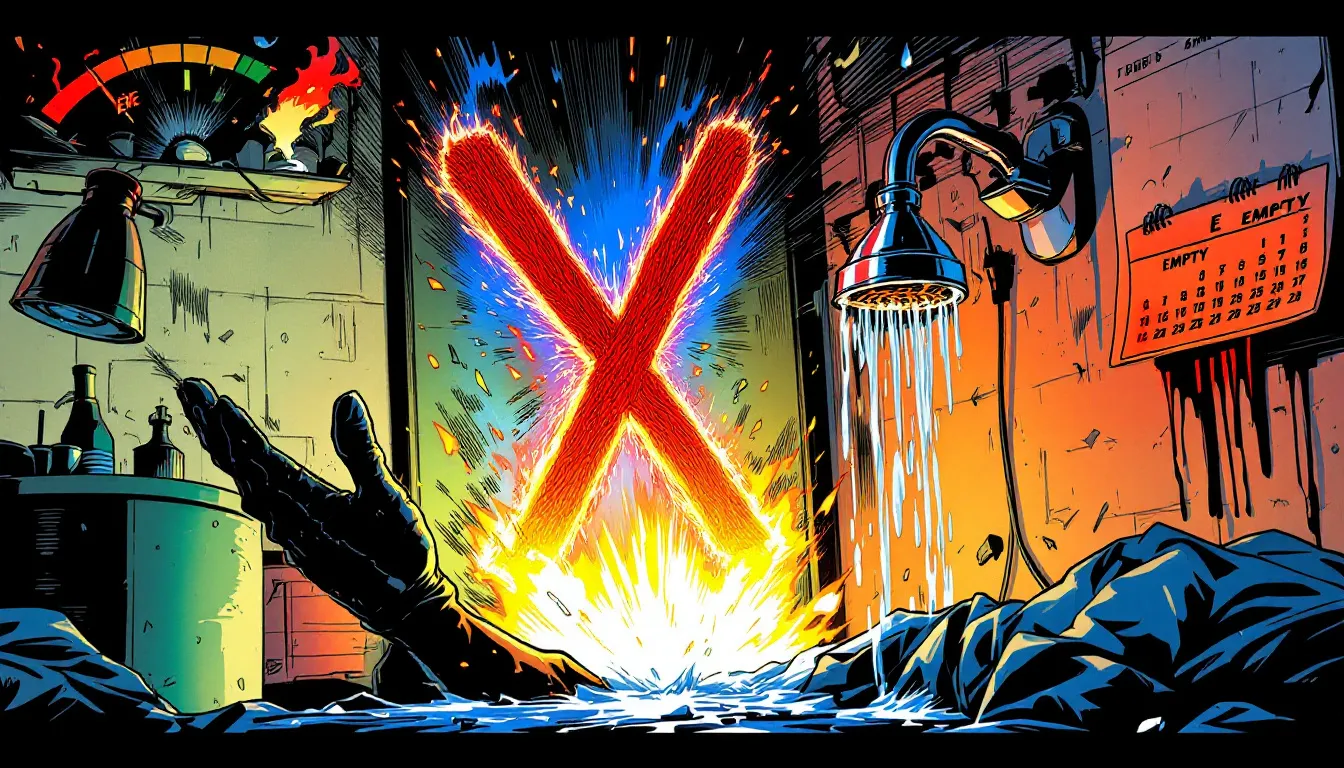
Electric hot water systems have their unique set of challenges. Understanding these common issues can help you troubleshoot effectively. Common problems include a faulty heating element, a tripped circuit breaker, or a broken thermostat in your electric hot water system.
Addressing these issues can restore your hot water supply without unnecessary delays. Explore these specific problems and how to fix them.
Faulty Heating Element
One of the most common issues in electric hot water systems is a faulty heating element in the electric water heater. Signs of a broken heating element include a complete lack of hot water and prolonged heating times.
Sediment in the tank can cause heating elements to overheat and fail. Regularly flushing the tank can prevent this issue and maintain efficiency.
Tripped Circuit Breaker
A tripped circuit breaker is another frequent problem. Electrical surges, overloaded circuits, or faulty wiring can cause the breaker to trip. If the circuit breaker is in the ‘off’ or neutral position, it needs to be reset.
Turn off a tripped circuit breaker, check for leaks, and flip it back on. If resetting doesn’t work, consult a professional.
Broken Thermostat
Inconsistent water temperatures can be due to a broken thermostat. If your water is too hot or too cold, it might indicate a malfunctioning thermostat. The optimal thermostat setting range for a water heater is 122-140°F. If adjusting the thermostat doesn’t help, it may need replacement.
Common Issues in Gas Hot Water Systems
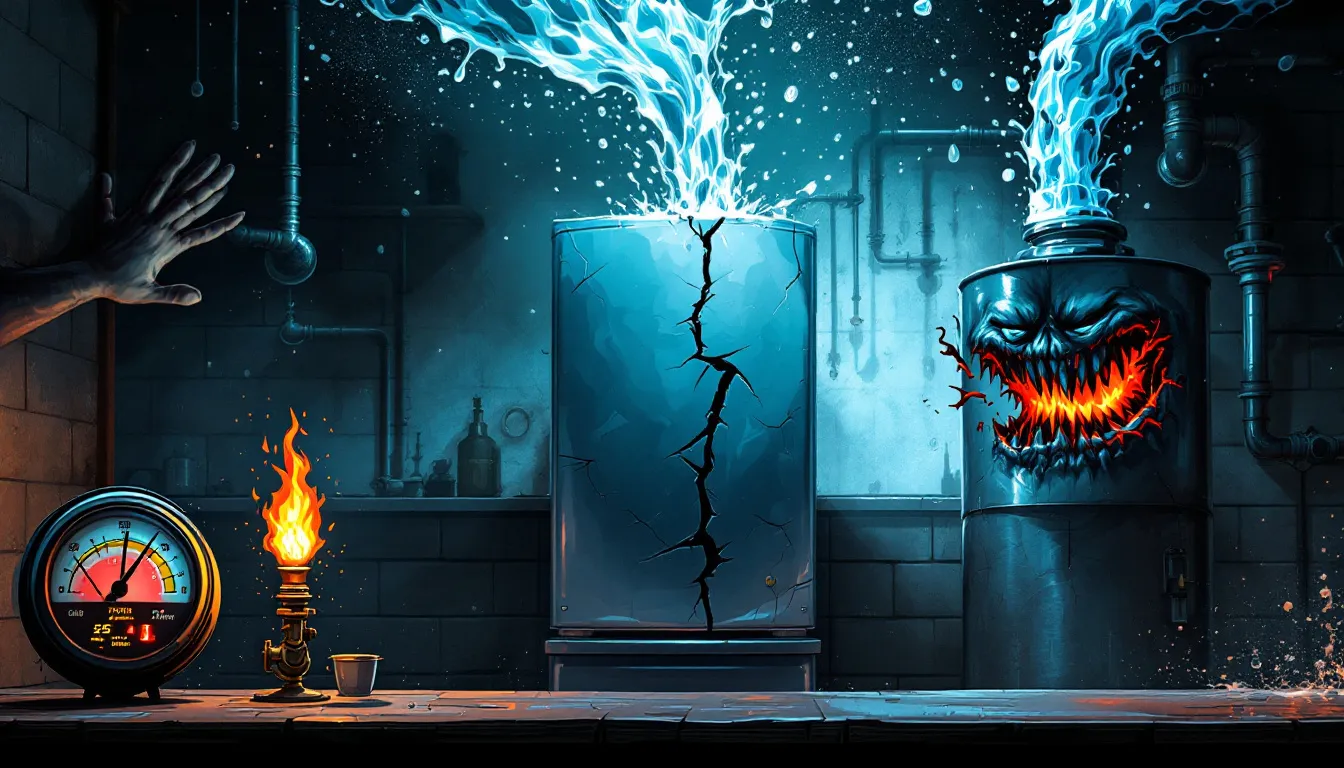
Gas hot water systems face specific challenges that can disrupt supply. Issues such as pilot light problems, gas supply issues, and a faulty thermocouple are common in these systems. Addressing these problems ensures a consistent hot water supply.
Explore these issues in detail.
Pilot Light Problems
The pilot light is essential for the operation of a gas water heater. If it goes out, the water won’t heat. Relight by turning the handle on the gas inlet valve to allow gas into the burner.
Make sure the area around the pilot light is free from drafts, which can extinguish the flame. Regular inspections can prevent frequent outages.
Gas Supply Issues
Gas supply problems can lead to a lack of hot water. Inspect the gas meter and ensure all associated components are functioning properly. A closed gas valve can prevent the water heater from working.
Detecting a gas leak requires immediate evacuation and contacting your utility company. Never try fixing it on your own.
Faulty Thermocouple
The thermocouple is a critical component in gas water heaters. It shuts off the gas supply if the pilot light goes out. A malfunctioning thermocouple can mistakenly shut off the gas supply. This can occur even if the pilot light is still burning.
Replace a faulty thermocouple to keep the pilot light lit and ensure proper operation.
General Hot Water System Problems
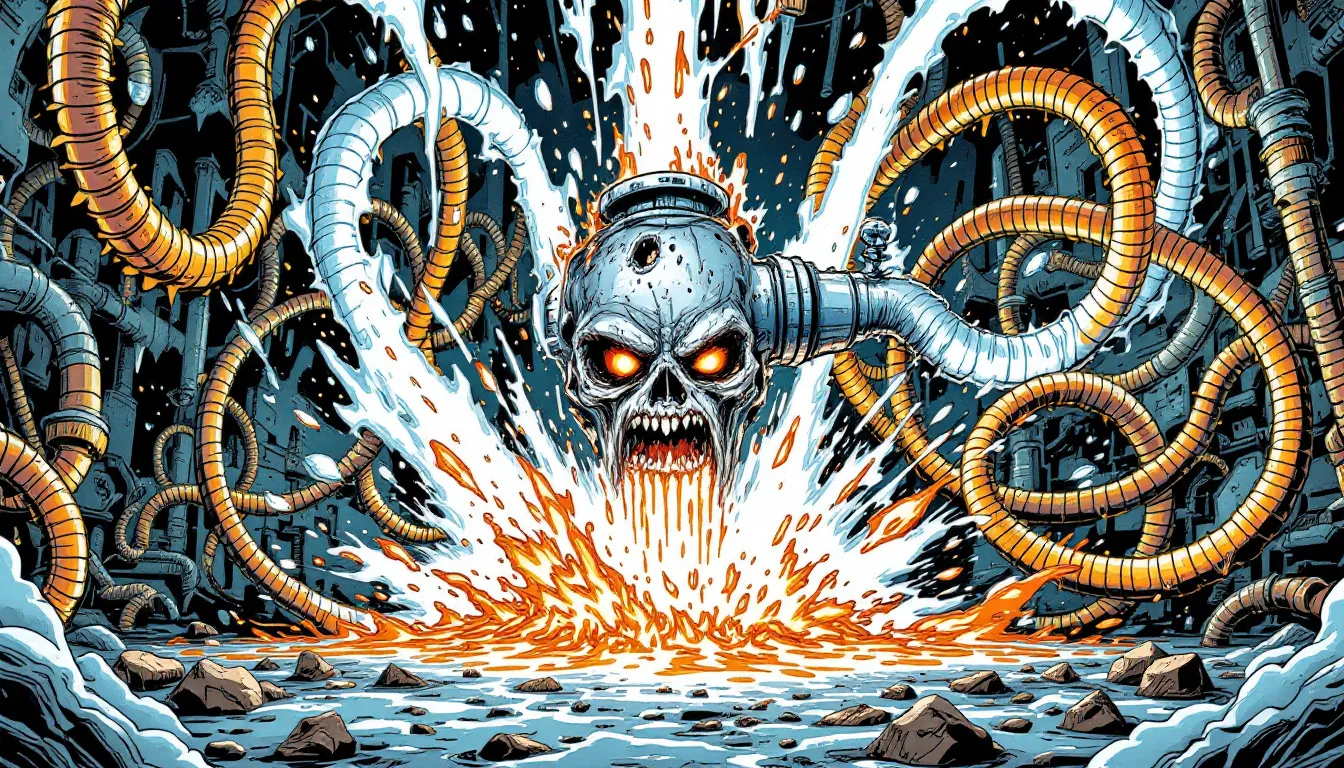
Electric or gas hot water systems can face general issues that disrupt performance. These problems include sediment build-up, leaking tanks, and incorrect installation. Addressing these issues helps maintain a consistent hot water supply.
Regular maintenance and proper installation prevent these problems. Explore these common issues and their solutions in detail.
Sediment Build-Up
Sediment build-up in the hot water tank can significantly reduce its heating efficiency. This accumulation can lead to longer heating times, reduced hot water availability, and increased energy consumption.
Flushing the tank regularly removes sediment and maintains optimal performance. Routine maintenance prevents sediment accumulation and ensures system longevity.
Leaking Water Tank
A leaking water tank is a clear sign of a malfunctioning hot water system. Water around the tank base can indicate a leak. Visible leaks or puddles near the tank suggest the need for professional replacement.
Inspect the area around the water heater, including the floor, piping, and relief valve, for leaks. Corrosion and loose connections can cause leaks, making regular inspections crucial.
Incorrect Installation
Improper installation can lead to inadequate performance and no hot water or cold water. Hiring professionals like JR Gas & Water ensures correct installation, preventing future issues and guaranteeing efficiency.
Professional installation avoids problems from incorrect connections and ensures proper functionality from the start.
Maintenance Tips to Prevent Hot Water Issues
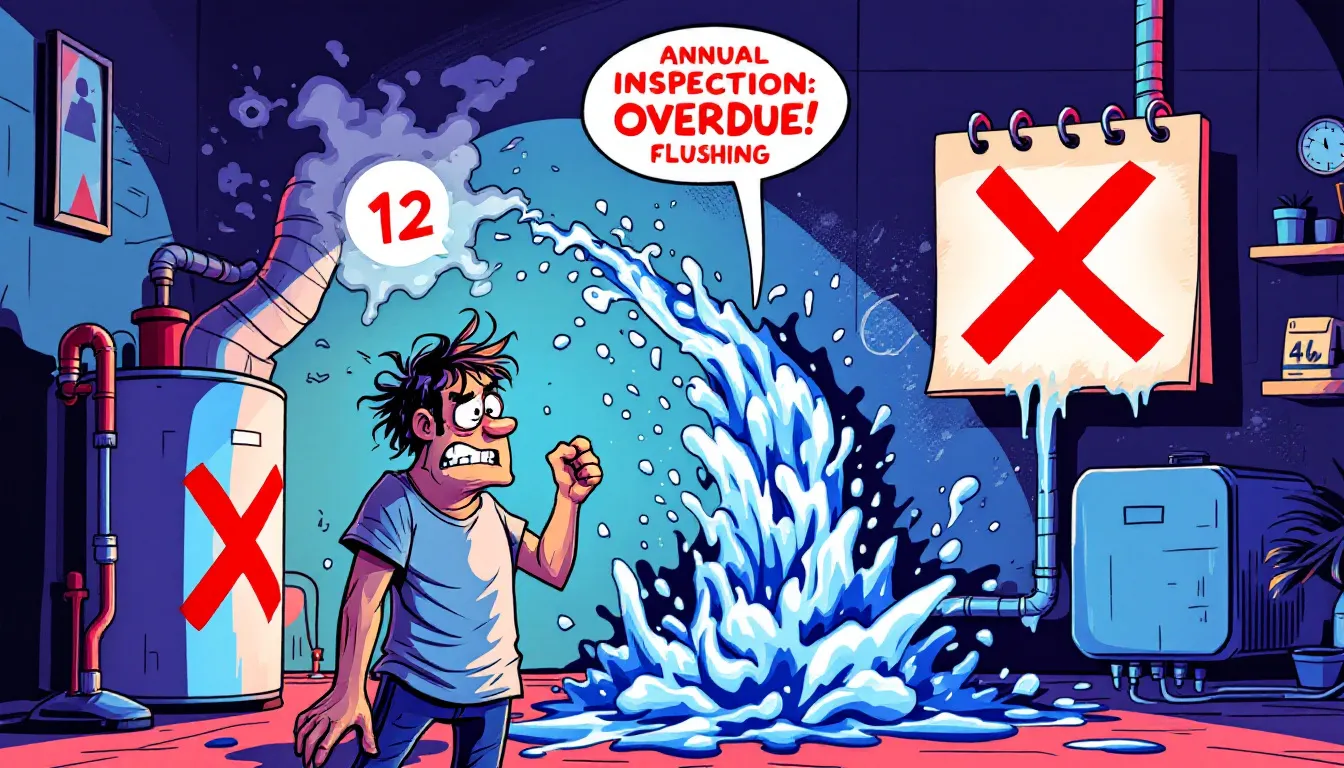
Regular maintenance prevents hot water issues and extends system life. Annual inspections, flushing the tank, and checking connections make a significant difference.
Staying proactive avoids major problems and ensures a reliable hot water supply. Explore these essential maintenance tips.
Annual Inspection
Annual inspections can spot potential issues early. Routine inspections can identify problems like rust and sediment accumulation before they escalate. Proactive annual inspections prevent significant problems, ensuring efficient operation.
Flushing the Tank
Regularly flushing the tank prevents sediment build-up. Sediment can clog the drain valve and reduce water heater efficiency.
To flush the tank, turn off the power supply, connect a hose to the drain valve, and let the water flow until clear. If sediment clogs the drain valve, consider replacing it.
Checking Connections
Regularly inspecting connections for wear or leaks prevents severe problems and ensures efficient operation. Loose connections can cause water leaks and reduce performance.
Regularly checking connections detects potential issues early, maintaining system integrity.
When to Call InstalledToday for Help
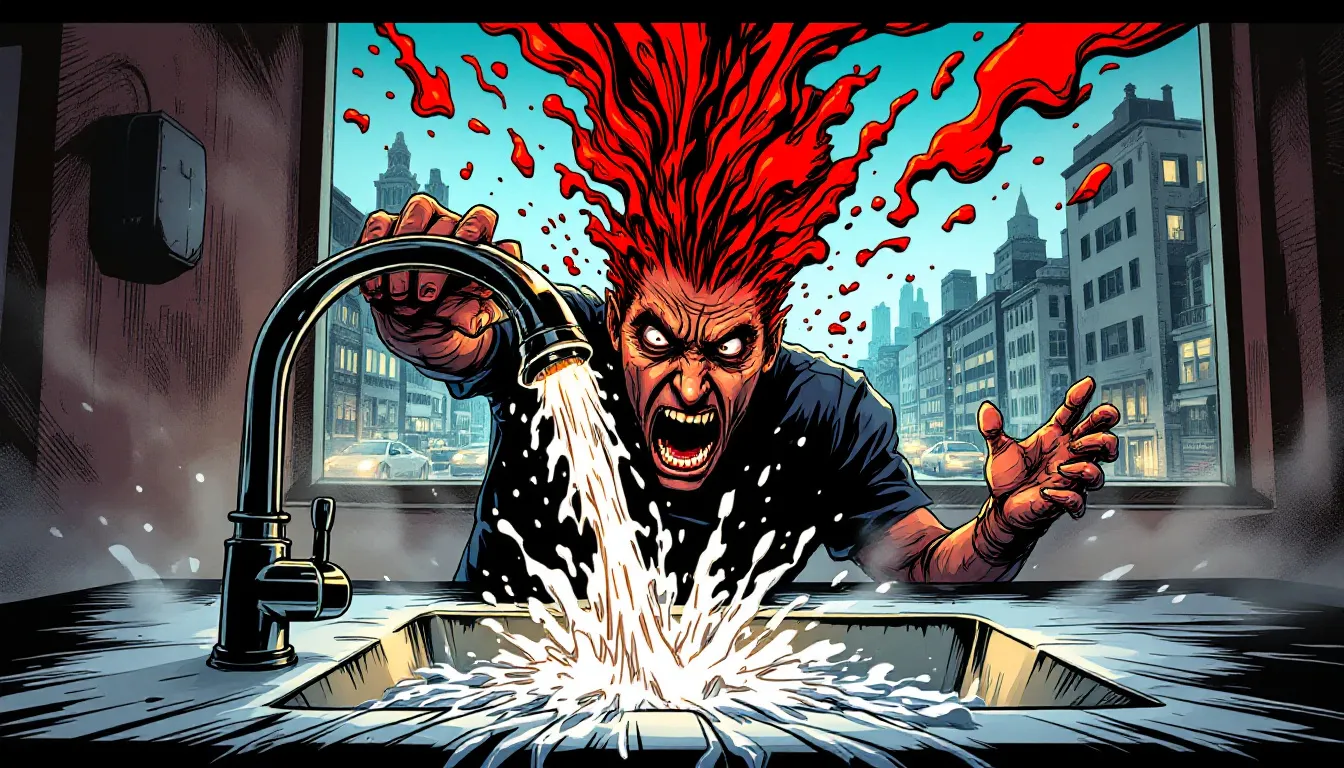
Sometimes, DIY troubleshooting isn’t enough. Persistent issues, safety concerns, and the need for expert diagnosis indicate it’s time to call InstalledToday for help. Seeking professional assistance at the right time can save time, money, and stress.
Professional plumbers handle complex issues and ensure your hot water system operates safely and efficiently. Explore when to seek professional help.
Persistent Issues
If troubleshooting doesn’t resolve the issue, call a professional. Underlying problems like a faulty heating element, hidden leaks, or an aging hot water heater require expert intervention.
Mechanical issues like a faulty tempering valve or temperature inconsistencies in a solar hot water system require professional assistance. Call a plumber if you’ve exhausted self-troubleshooting steps.
Safety Concerns
Safety should always be a top priority. Suspected gas leaks require evacuation and immediate notification of both a plumber and the gas company. Handling gas leaks and electrical issues requires professional expertise to avoid hazards.
Prioritizing safety prevents potential dangers and ensures household well-being.
Expert Diagnosis
Professional diagnosis by InstalledToday addresses complex hot water issues safely and effectively. Professional services ensure technicians have the right tools and expertise to handle both electric and gas systems properly.
Annual inspections with InstalledToday identify potential issues early, ensuring functionality and safety. Professional services provide peace of mind, knowing experts ensure a reliable hot water supply.
Summary
To sum up, regular maintenance and timely troubleshooting are key to ensuring a consistent hot water supply. From checking the power and gas supplies to addressing common issues and performing routine maintenance, these steps can save you from unexpected cold showers.
When in doubt, don’t hesitate to call InstalledToday for professional help. Their expertise ensures that your hot water system operates efficiently and safely, giving you peace of mind and a reliable hot water supply.
Frequently Asked Questions
What is the voltage requirement for electric hot water systems?
Electric hot water systems typically require a 240-volt supply to operate effectively. This voltage ensures optimal performance and efficiency in heating water.
How do electric hot water systems compare to gas systems in terms of environmental impact?
Electric hot water systems have a lower environmental impact compared to gas systems because they can utilize renewable energy sources, whereas gas systems rely on fossil fuels. This shift to electricity can lead to a more sustainable energy footprint.
What should be done if the pilot light goes out?
If the pilot light goes out, relight it by turning the handle on the gas inlet valve to allow gas to flow to the burner, ensuring that the area is free from drafts. Make sure to follow safety precautions when doing so.
What are the signs of a faulty heating element?
A faulty heating element is indicated by a lack of hot water and extended heating times. Additionally, overheating due to sediment buildup may also signal potential failure.
When should I call InstalledToday for help?
You should call InstalledToday for assistance when troubleshooting fails, if you encounter safety issues such as gas leaks, or when you need an expert diagnosis for complex problems.


























